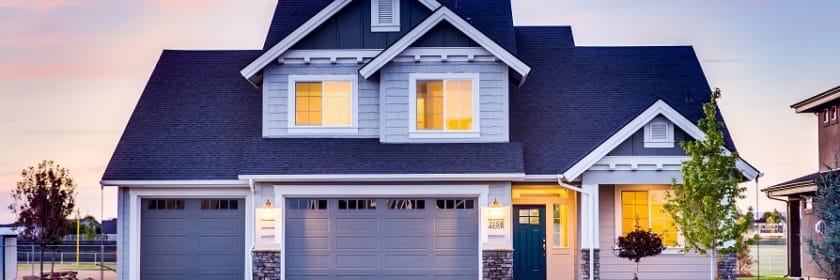Questions Every First-Time Homebuyer Needs to Ask Themselves
Tips for Determining Whether or Not You Are Ready for Homeownership
Buying your first home is an important milestone for any adult. After all, finally owning property and having a place to call your own is what most people dream of. But how do you know if you are actually ready to become a homeowner? This, plus many other questions are probably going through your mind if you’re thinking of buying a home for the first time.
But before you take the plunge into the homeowner pool, there are important questions you should be asking yourself to help ensure you are actually ready for this kind of commitment.
Questions All First-Time Homebuyers Need to Answer
Why Do You Want to Buy A Home?
According to a report from Clever, more than half of all millennial homeowners regret purchasing their first home.
To avoid being a part of this statistic, ask yourself why exactly you want to buy a home.
Buying a home is a pretty big deal, so it’s important that you are doing it for the right reasons.
If you are feeling pressure from friends, family, or society to be a homeowner, this isn’t a good enough reason alone to make such a big life move.
Here are a few positive reasons for wanting to buy your first home:
- You are planning to have children or have pets and need extra room
- You are looking to put down roots and start building equity
- You are stable in your career and ready for the financial commitment
- You are looking for a bigger space and are prepared for the responsibility of taking care of a home
Are You Ready to Commit and Settle Down?
Sit down and really think about where you are in your current stage of life and ask yourself the following questions:
- Do you have a steady income or are you just starting out in your career?
- Are you looking to be in your current job long-term or do you consider it a steppingstone for other opportunities?
- Are you happy in your current city or do you often think about packing up and moving to a new location?
- If you are looking to buy a house with a romantic partner, are you prepared for the commitment of doing so?
Buying a home is a major commitment and requires a lot of time and energy. Rather than signing a one-year lease, you’re locking yourself in to a mortgage with a much longer term, and possibly higher monthly payments. And when you decide you’re ready to move on, you need to go through the process of selling your home, which can end up being long and drawn out and a much more complicated process than moving out of an apartment.
For these reasons, it’s important to make sure you are ready to commit to one home for a while and take on this kind of responsibility.
How Much Can You Afford to Spend?
It goes without saying that you should not be buying a home that you cannot afford. But how do you know what you can or cannot afford when it comes to a home?
The best way to figure this out is to look at your current monthly budget and how much you are currently paying in rent. Based on your income and other expenses, can you comfortably pay more than you currently are or is your budget already stretched?
Once you have an idea of how much you can afford to pay towards your monthly mortgage payments, try using an online mortgage calculator. This will help you figure out how much your estimated monthly mortgage payments will be based on the home prices you are looking at and your down payment.
If your estimated monthly payments for a home are similar to your rent payments and you have enough for a down payment, now is a good time to buy.
Considering the fact that both home prices and rent are increasing faster than employment income, buying a home sooner rather than later is a good investment if you can afford it.
And even if your estimated mortgage payments end up being higher than what you can comfortably spend, rather than postponing purchasing a home, consider saving up for a larger down payment or look for homes that are not priced as high.
How Strong Is Your Credit?
If you aren’t already keeping track of your credit score, now is the time to start.
Having bruised credit can be a barrier towards buying a home, so it’s important to look at your credit history and start working towards improving it.
Having a score of 620 or higher is your best bet for securing a loan with optimal terms and rates.
Having a score that’s lower than this will increase your chances of ending up with a high-interest rate and mortgage terms that are less than ideal.
Here are some tips for improving your credit as you work towards saving up to buy a home:
- Pay down your credit cards
- Get a secured credit card
- Don’t miss any debt payments
- Avoid obtaining any additional credit
- Don’t max out any credit cards or hover close to the limit
Also know that even if your credit score isn’t ideal, you still have options for buying a home.
If you find yourself in a position where you are ready to purchase a home but your credit history isn’t strong, talk to a mortgage broker about alternative lending options.
Do You Have Enough Money Saved for A Down Payment?
One of the biggest sources of stress for millennial homebuyers is high monthly mortgage payments due to not having enough money set aside for a sizeable down payment.
In fact, according to the Clever report mentioned earlier, 67% of millennials put less than 20% of their home’s value down, leading to higher mortgage payments and buyer’s remorse.
Before you can even think about buying your first home, you need to make sure you have more than enough money saved to put towards a down payment.
But how much do you need?
In Canada, the minimum amount to put down on a home valued at $500,000 or less is just 5% of the purchase price.
For homes in the $500,000 to $999,999 range, 5% of the first $500,000 of the purchase price is required, plus 10% for the portion that’s over $500,000.
However, putting down more than just the minimum will help lower your mortgage payments and interest rates, and reduce mortgage insurance premiums.
Are You Prepared for All the Costs Associated with Buying A Home?
Buying a home costs more than just your down payment. There are many other legal and administrative costs that can add up quickly if you aren’t prepared for them. These costs can include:
- Legal fees
- Land transfer tax
- Land survey fee
- Appraisal fee
- Home inspection fee
- Homeowners insurance
- Mortgage insurance
- Title insurance
These costs can range from 1 % to 4% of the purchase price of your new home.
Other costs can include:
- Moving costs
- Appliances
- Condo fees
- Painting and renovations
How Flexible Are You Willing to Be?
While we all have that dream home that we’ve always pictured for ourselves, being able to purchase or build it isn’t always realistic for many first-time homebuyers.
Remember that brand-new homes with spacious floor plans and large backyards in large cities or hot neighbourhoods come with a higher price tag that you may not be able to afford.
But rather than waiting until you are ready for your ideal home, try to keep an open mind and be flexible regarding your criteria and look for a starter home you are comfortable living in until your dream home is attainable.
This could mean considering townhouses or condos or looking a little further outside of the city.
Also come up with a list of needs – must-have items in a home that you aren’t willing to sacrifice to present to your realtor (ask your mortgage broker for a referral).
This can include:
- A garage
- Outdoor space
- Close proximity to work and schools
- A certain number of bedrooms and bathrooms
Then devise your list of ‘wants’ – things you’d love to have but can live without.
This could include:
- A finished basement
- Brand new appliances
- Granite countertops
- An open concept floor plan
- A swimming pool
- Specific carpeting, paint, or exterior colour
Having these lists and being open to compromise will help you narrow down your search and find a home within your price range.
Do You Know About Your Mortgage Options?
Just like clothing, mortgages are not one size fits all, and there are many different types of mortgages you can explore depending on your circumstances.
It’s important that you do your research and have an idea of which mortgage option will be right for you.
Which brings us to our next point.
The Importance of Working with A Mortgage Broker
Trying to figure out all the different types of mortgages available and what they mean can become confusing and stressful without the right support.
A mortgage broker can help you navigate the borrowing process and find you a loan that will best meet your needs.
When buying your first home, it’s important that you don’t leave your mortgage up to guesswork. Speak with a mortgage broker to learn about all your options and take one step closer towards homeownership.

Chris Allard’s experience in the field means he can get you offers with over 50 financial institutions lending in Ottawa. Every lender has many mortgage products they offer, which means Chris and his team will make sure a mortgage caters to your needs while also ensuring you get a competitive rate. Chris Allard is a proud mortgage broker of Smart Debt Mortgages, independently owned and operated. Smart Debt broker #12236.


